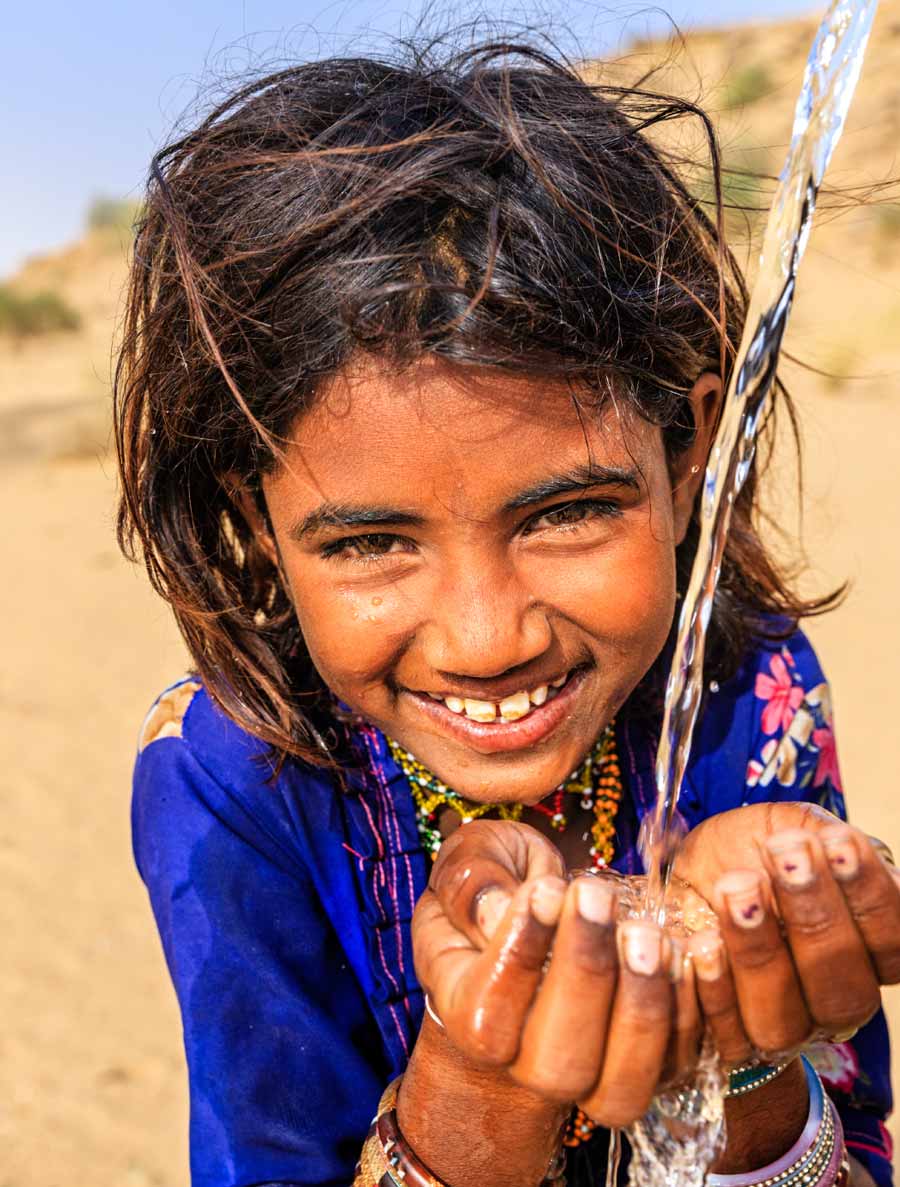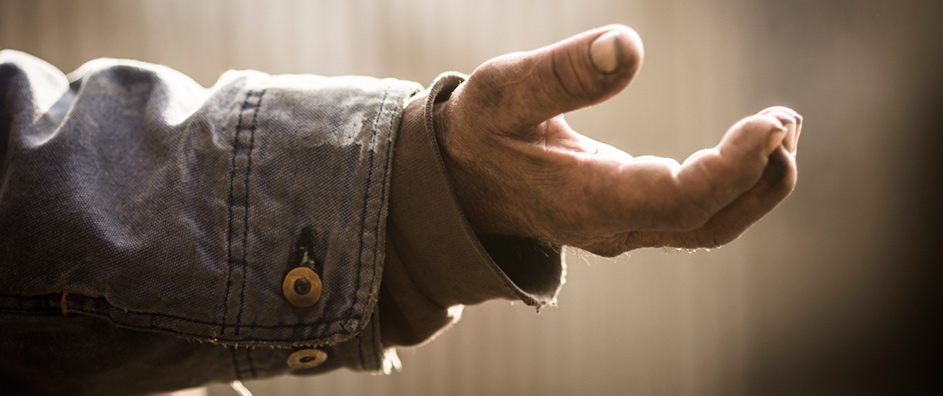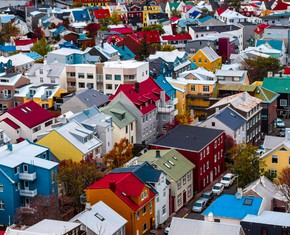The views expressed in our content reflect individual perspectives and do not represent the authoritative views of the Baha'i Faith.
Know ye that the poor are the trust of God in your midst. Watch that ye betray not His trust, that ye deal not unjustly with them and that ye walk not in the ways of the treacherous. Ye will most certainly be called upon to answer for His trust on the day when the Balance of Justice shall be set, the day when unto every one shall be rendered his due, when the doings of all men, be they rich or poor, shall be weighed. – Baha’u’llah, Gleanings from the Writings of Baha’u’llah, p. 251.
…consideration shown to the poor is one of the greatest teachings of God. – Abdu’l-Baha, Selections from the Writings of Abdu’l-Baha, p. 27.
Join yourselves to those who work for the poor, the weak and the unfortunate; this is greatly to be commended. – Abdu’l-Baha, Abdu’l-Baha in London, p. 98.
Those souls who during the war have served the poor and have been in the Red Cross Mission work, their services are accepted at the Kingdom of God and are the cause of their everlasting life. Convey to them these glad tidings. – Abdu’l-Baha, Selections from the Writings of Abdu’l-Baha, p. 116.
…thy wish is to serve the poor. What wish better than this! Those souls who are of the Kingdom eagerly wish to be of service to the poor, to sympathize with them, to show kindness to the miserable and to make their lives fruitful. Happy art thou that thou hast such a wish. – Abdu’l-Baha, Selections from the Writings of Abdu’l-Baha, pp. 115-116.
The Baha’i teachings, like the teachings of every other major religion on Earth but maybe even more so, pay an enormous amount of attention to poor people. A constant and consistent theme throughout Baha’u’llah’s and Abdu’l-Baha’s writings, poverty and its alleviation often lead the list of Baha’i priorities and principles. Without any doubt, Baha’u’llah repeatedly urged humanity to care for the poor:
Be ye trustworthy on earth, and withhold not from the poor the things given unto you by God through His grace. – Baha’u’llah, Epistle to the Son of the Wolf, pp. 54-55.
O ye rich ones on earth! If ye encounter one who is poor, treat him not disdainfully. Reflect upon that whereof ye were created. Every one of you was created of a sorry germ. – Ibid., p. 55.
O son of spirit! Vaunt not thyself over the poor, for I lead him on his way and behold thee in thy evil plight and confound thee for evermore. – Baha’u’llah, The Hidden Words, p. 10.
O son of man! Bestow My wealth upon My poor, that in heaven thou mayest draw from stores of unfading splendor and treasures of imperishable glory. But by My life! To offer up thy soul is a more glorious thing couldst thou but see with Mine eye. – Ibid., p. 17.
O children of dust! Tell the rich of the midnight sighing of the poor, lest heedlessness lead them into the path of destruction, and deprive them of the Tree of Wealth. To give and to be generous are attributes of Mine; well is it with him that adorneth himself with My virtues. – Ibid., p. 39.
O ye rich ones on earth! The poor in your midst are My trust; guard ye My trust, and be not intent only on your own ease. – Ibid., p. 41.
 You get the idea—in this new revelation, we all have a new level of love and responsibility for our brothers and sisters in the human family. Baha’is deeply believe that the Earth is one country and every human being its citizens; and try to consider the whole of humanity as our own family. That essential oneness doesn’t just mean some kumbaya-like sense of vague solidarity with others—it means actual human connectedness and oneness. That poor woman in Madagascar who you’ve never met and never will meet—she is your sister. Your family’s blood runs in her veins. If she is poor and hungry and you have the means to help her, then with sufficient love and conscience and unity, you can probably find ways to make sure she has enough to eat and a roof over her head. If she’s your next-door neighbor, that makes it even easier.
You get the idea—in this new revelation, we all have a new level of love and responsibility for our brothers and sisters in the human family. Baha’is deeply believe that the Earth is one country and every human being its citizens; and try to consider the whole of humanity as our own family. That essential oneness doesn’t just mean some kumbaya-like sense of vague solidarity with others—it means actual human connectedness and oneness. That poor woman in Madagascar who you’ve never met and never will meet—she is your sister. Your family’s blood runs in her veins. If she is poor and hungry and you have the means to help her, then with sufficient love and conscience and unity, you can probably find ways to make sure she has enough to eat and a roof over her head. If she’s your next-door neighbor, that makes it even easier.
In fact, that love for others, the familial bonds of duty it engenders, and the fact that Baha’u’llah calls “the poor in your midst… My trust” takes such a primary priority from a Baha’i perspective that Baha’u’llah characterizes it as a central question God will eventually ask each one of us:
Ye will most certainly be called upon to answer for His trust on the day when the Balance of Justice shall be set, the day when unto every one shall be rendered his due, when the doings of all men, be they rich or poor, shall be weighed. – Gleanings from the Writings of Baha’u’llah, p. 251.
How will you answer?
Perhaps the prophets of God feel so sympathetic towards the sufferings of the poor because they themselves knew and understood such privation and poverty from experience:
The Divine Educators who have brought the Light of Guidance to this world found neither rest nor comfort by day or night. Abraham, Moses, Jesus, Mohammed, Baha’u’llah, all the Heavenly Messengers suffered the utmost privation and underwent extreme hardships in the Pathway of God. They were exiled from their native land, imprisoned, driven from city to city; they were homeless, hungry and found no rest; they lived in the fields and hid in caves among the mountains; the sky was their canopy, the hard earth their bed. But all these difficulties and hardships served only to increase their power and accomplishment. Through these privations and persecutions they were severed from the world. Although they walked upon the earth, they lived in Heaven. Deprived of material food they partook of the eternal fruits of Paradise. Homeless and forsaken in this world, they rested upon the Divine Couch of Nearness. Day and night they were unceasingly proclaiming the Call of the Kingdom and establishing the foundations of the Most Great Peace. – Abdu’l-Baha, Star of the West, Volume 3, p. 104.
Next: The Beautiful Baha’i Promise of a Poverty-Free Future
















Comments
Sign in or create an account
Continue with Googleor